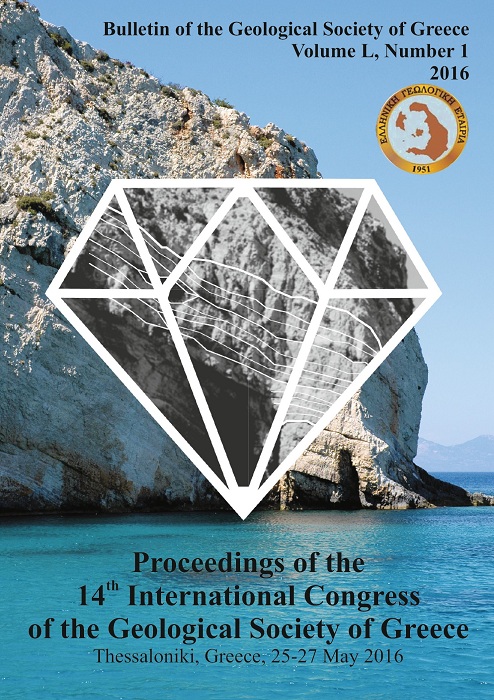GLOBAL GEOPARKS NETWORK AND THE NEW UNESCO GLOBAL GEOPARKS PROGRAMME
Περίληψη
The Geopark concept was introduced at late 90’s aiming to protect and promote Earth heritage sites through the sustainable local development of territories containing abiotic nature of significant value. The Global Geoparks Network (GGN) established in 2004 operates as an international platform of cooperation among Geoparks around the world The GGN includes 120 Geoparks in 33 countries working to protect Geological heritage and promote local sustainable development. The 38th UNESCO General Conference (November 2015) ratified the statutes of the new International Geoscience and Geoparks Programme and the UNESCO Global Geoparks Operational Guidelines, introducing the brand UNESCO Global Geopark as a label of excellence for areas that meet the criteria set by the above mentioned guidelines. In doing so, it has legally endorsed the new UNESCO label of “UNESCO Global Geopark" and the endorsement of all the existing 120 Global Geoparks to become UNESCO Global Geoparks with immediate effect.
The UNESCO Global Geopark branding could strongly contribute to raising Earth
Heritage sites visibility in the world and in high-quality public outreach on
sustainable development linked to issues on geodiversity, the environment,
geohazards, climate change and the sustainable use of natural resources.
Λεπτομέρειες άρθρου
- Πώς να δημιουργήσετε Αναφορές
-
Zouros, N. (2016). GLOBAL GEOPARKS NETWORK AND THE NEW UNESCO GLOBAL GEOPARKS PROGRAMME. Δελτίο της Ελληνικής Γεωλογικής Εταιρείας, 50(1), 284–292. https://doi.org/10.12681/bgsg.11729
- Ενότητα
- Διδακτική των Γεωεπιστημών

Αυτή η εργασία είναι αδειοδοτημένη υπό το CC Αναφορά Δημιουργού – Μη Εμπορική Χρήση 4.0.
Οι συγγραφείς θα πρέπει να είναι σύμφωνοι με τα παρακάτω: Οι συγγραφείς των άρθρων που δημοσιεύονται στο περιοδικό διατηρούν τα δικαιώματα πνευματικής ιδιοκτησίας επί των άρθρων τους, δίνοντας στο περιοδικό το δικαίωμα της πρώτης δημοσίευσης. Άρθρα που δημοσιεύονται στο περιοδικό διατίθενται με άδεια Creative Commons 4.0 Non Commercial και σύμφωνα με την οποία μπορούν να χρησιμοποιούνται ελεύθερα, με αναφορά στο/στη συγγραφέα και στην πρώτη δημοσίευση για μη κερδοσκοπικούς σκοπούς. Οι συγγραφείς μπορούν να: Μοιραστούν — αντιγράψουν και αναδιανέμουν το υλικό με κάθε μέσο και τρόπο, Προσαρμόσουν — αναμείξουν, τροποποιήσουν και δημιουργήσουν πάνω στο υλικό.






